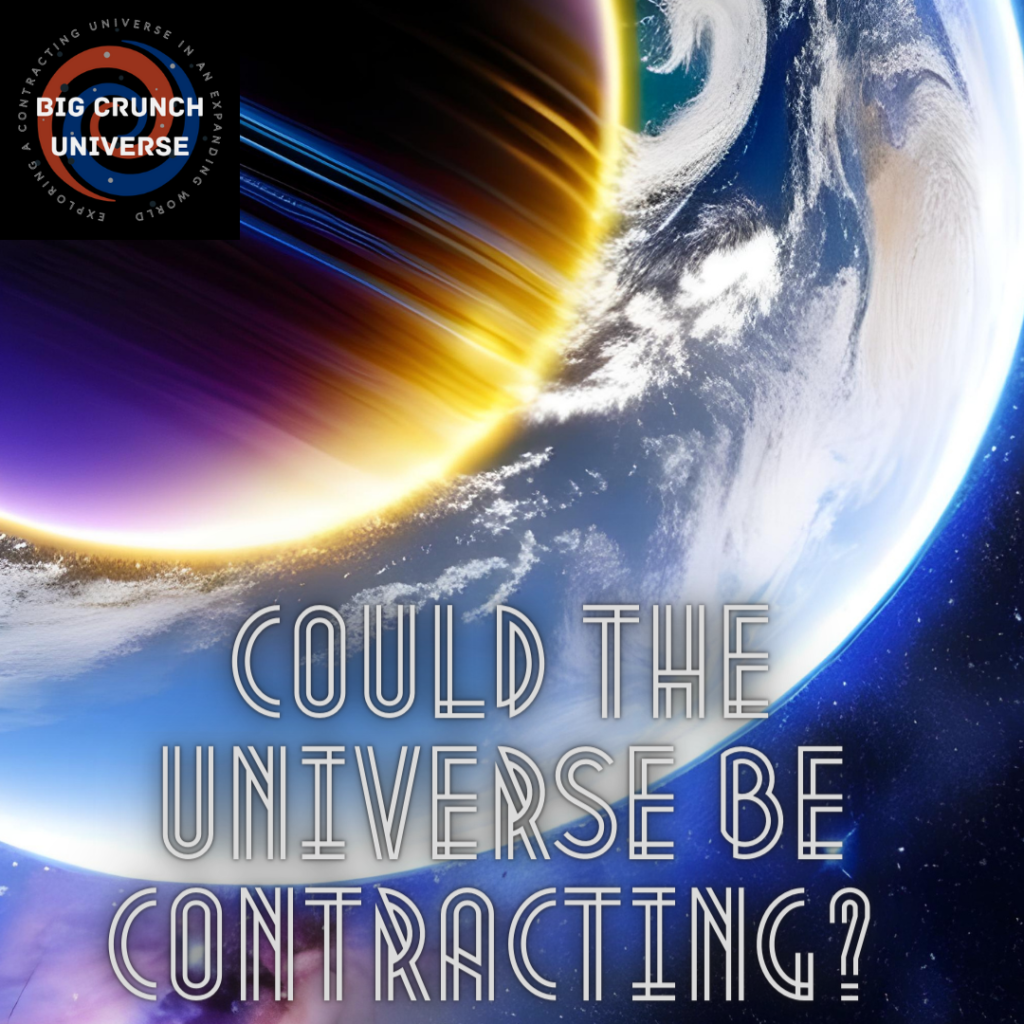Is the Universe Contracting? Rethinking the Expanding Universe Theory
For decades, the prevailing view among scientists has been that the universe is expanding at an accelerating rate. However, recent astronomical observations and theoretical considerations have raised intriguing questions about this widely accepted notion. In this blog post, we will explore why the theory of a contracting universe should be reevaluated, challenging the prevailing concept of cosmic expansion.

1. Alternative Observational Evidence:
While the expanding universe theory is primarily supported by observations of distant supernovae and the cosmic microwave background radiation, alternative interpretations of these observations are possible. Some scientists argue that the redshift of distant galaxies, which is commonly attributed to the expansion of space, could be caused by other phenomena such as gravitational interactions or the evolution of light over cosmic distances. These alternative explanations question the foundation of the expanding universe theory.
2. Dark Energy and Dark Matter:
The expanding universe theory heavily relies on the concepts of dark energy and dark matter. Dark energy is believed to account for the accelerating expansion, while dark matter is proposed to explain the observed gravitational effects on galaxies and galaxy clusters. However, both dark energy and dark matter remain hypothetical and have not been directly detected. The reliance on these elusive components raises doubts about the validity of the expanding universe theory.
3. Gravitational Interactions:
While the expansion of the universe is evident on a large scale, gravitational interactions play a crucial role in shaping the structure of the cosmos. On smaller scales, such as within galaxy clusters, the gravitational pull between galaxies can lead to the formation of superclusters and even eventual mergers. These local gravitational interactions raise questions about the notion of an expanding universe when structures are actively coming together under gravity’s influence.
4. Alternative Theoretical Frameworks:
Reevaluating the expanding universe theory requires considering alternative theoretical frameworks. For instance, some scientists propose cyclic models of the universe, where expansion is followed by contraction in an endless cycle. These models suggest that the universe undergoes a phase of contraction after reaching a maximum expansion, leading to a new cycle of expansion. While still speculative, cyclic models offer an intriguing alternative that challenges the concept of a perpetually expanding universe.
5. Quantum Cosmology and Singularities:
Another reason to reevaluate the expanding universe theory lies in the realm of quantum cosmology. The theory of general relativity, which describes gravity on a cosmic scale, breaks down at the extremely high densities and temperatures found in the early universe. To understand the universe’s behavior at those early stages, a theory of quantum gravity is needed. By incorporating quantum effects into the cosmological framework, new insights may emerge that could reshape our understanding of cosmic expansion.
Conclusion:
While the expanding universe theory has been the dominant paradigm for understanding the cosmos, it is essential to maintain a spirit of scientific inquiry and reevaluate established theories. Alternative observational interpretations, the unknown nature of dark energy and dark matter, the significance of gravitational interactions, and the possibility of alternative theoretical frameworks all warrant a fresh look at the concept of a contracting universe. By questioning and reevaluating our assumptions, we can advance our understanding of the cosmos and pave the way for new breakthroughs in cosmology.